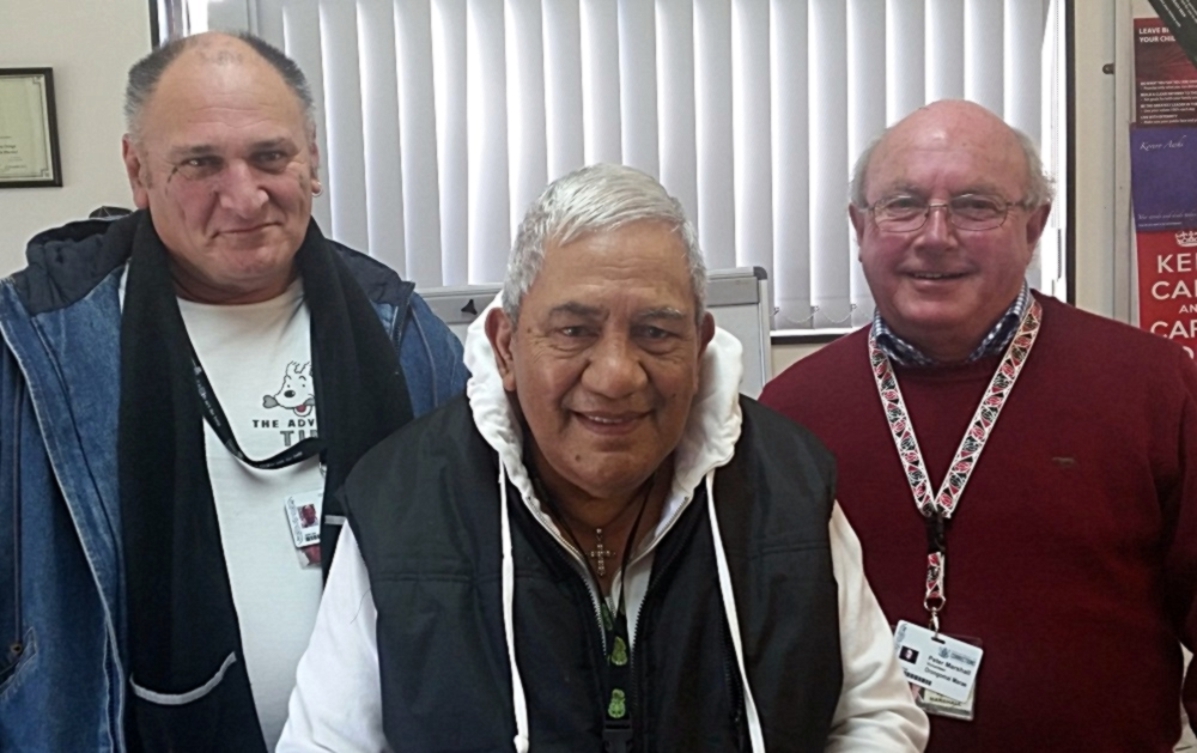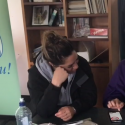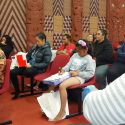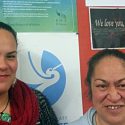George Kupa, Peter Marshall and Joe Hamiora know how tough it can be for inmates returning to society after even a short stint inside. Every day Orongomai’s three-man Prisoner Reintegration team works to fill gaps in a system that offers prisoners little practical support when they walk out of those prison gates.
Experience, warmth and a straight up, no nonsense relationship with their clients makes these three musketeers a formidable team.
George says he got into trouble as a young man “because I was little shit”, despite coming from a loving, close knit family. In his mid 30s he “finally grew up”, and started studying bi-cultural social science at the Wānanga o Aotearoa.
Insight into justice system
“That gave me another perspective. It gave me insight into how the justice and social systems work and how to skilfully manoeuvre my way through them. I came to understand the language officials used, why they thought the way they did and, most importantly, the need to network.”
Peter describes his background as middle class Pākeha and privileged. He had a long career in the financial sector before seeking a new direction. He completed a Masters degree in Adult Education with an emphasis on the cultural needs of Māori adult learners before taking up an offer of working with George at the marae.
“I thought I’d better walk the talk.”
Joe spent 22 years working in property management. He knows how hard it is to get inmates into any kind of decent accommodation on their release. Long retired from that profession, Joe uses his connections and a lifetime of nous to find the mostly male ex-inmates a safe place for them to restart their lives outside prison.
The power of networking
All three men have extensive networks throughout the commercial and social services sectors and they’re not afraid to use them.
Last financial year they helped 74 clients adapt to their new situation, 38 of whom were helped into suitable housing. Nearly 30 percent were helped into work or tertiary study.
The partners of their clients are offered the same service and last year the team assisted a further 28 families and individuals deal with a variety of issues.
Most clients are referred through Work and Income or by Corrections staff, although some walk off the street asking for assistance.
Peter and George regularly meet inmates before they’re released, supporting them at Parole Board hearings, picking them up at the prison gate, checking in with their probation officers, taking them through the Work and Income processes and finding them suitable clothing, food and accommodation. They are currently working with 37 inmates in Rimutaka Prison and four in Arohata Women’s Prison.
Support on release vital
On release, inmates get only $350.
“That’s supposed to cover food, rent, clothing, everything, for up to two or three weeks until their benefit kicks in. Clearly, that’s not going last them,” says George.
Accommodation is always a challenge which is where Joe comes in. He has a reputation amongst landlords for making sure their property is respected,
“I keep an eye on them, make sure the rent and power is paid. That’s the understanding I have with the ex-inmates before we take them on,” he says.
They’re all working to help ex-inmates turn their lives around and they reckon that 85 per cent of the time, they are successful. They never turn anyone away and often end up helping people others have given up on.
“Most of those on our service have either burnt their bridges with other prisoner aid organisations or they do not fit their kaupapa,” says George.
He agrees wholeheartedly with Peter when he says, “If we can help just one person get on his feet and make a go of life outside of prison, everything we do here is worth it!”




